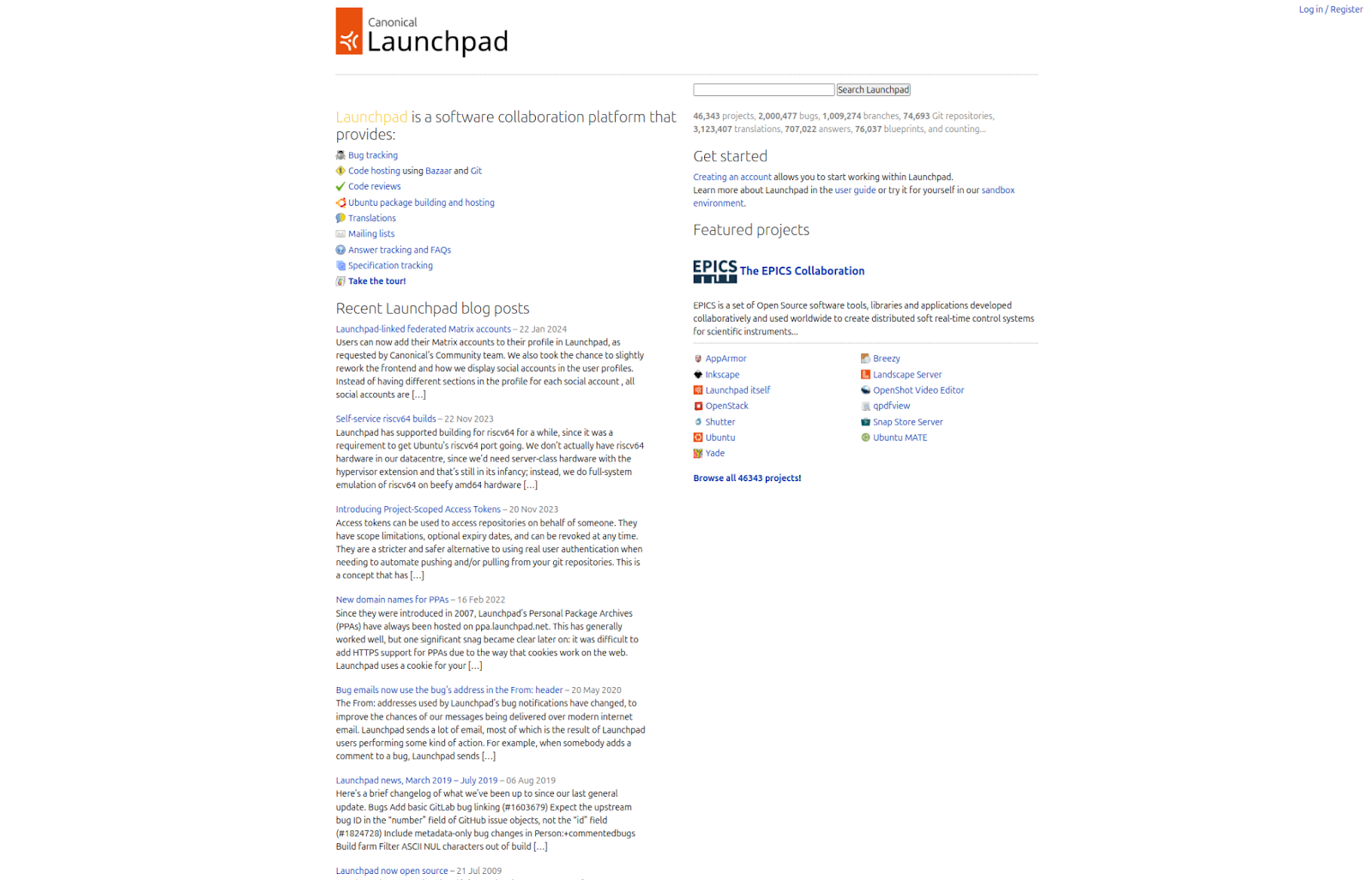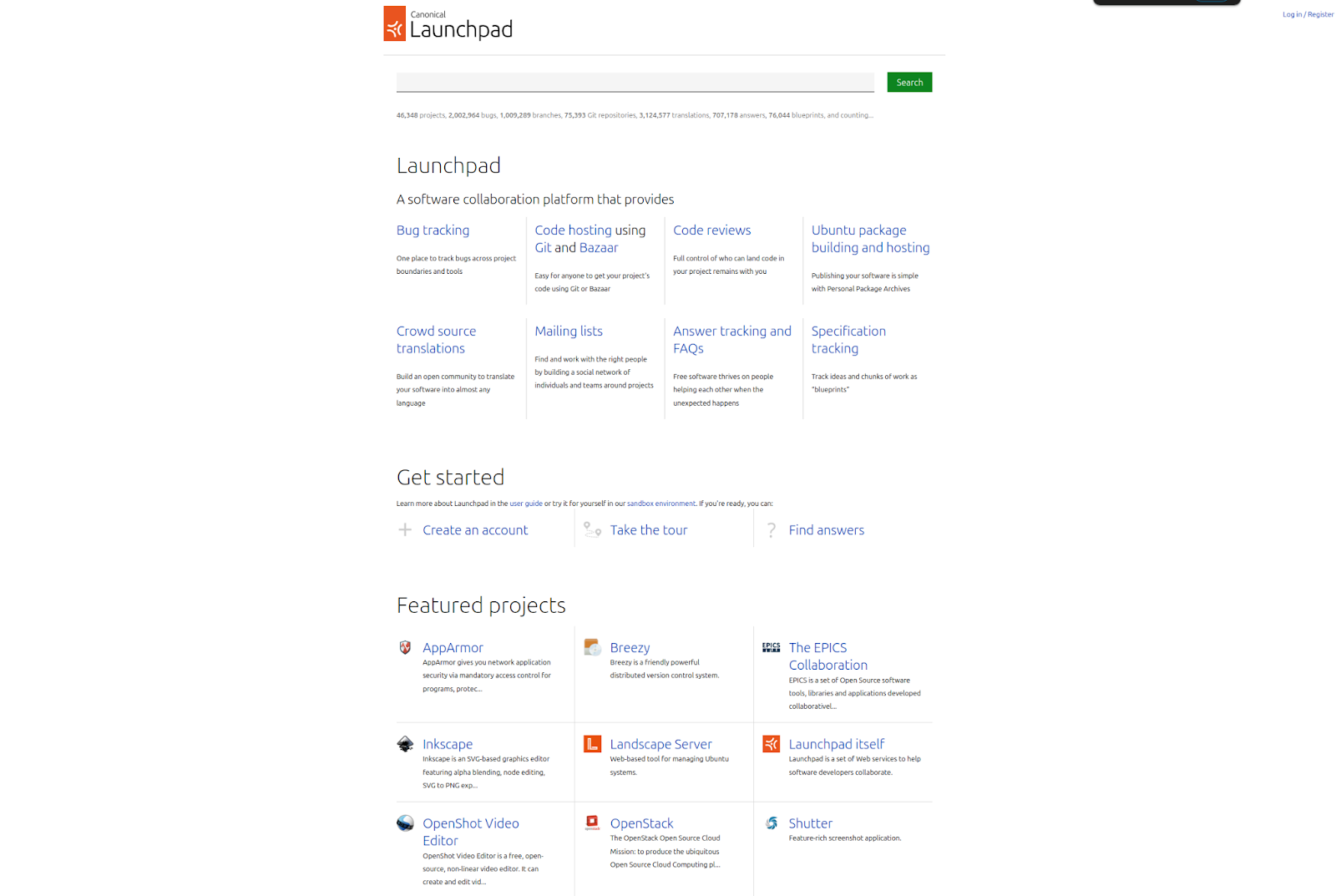What is Bazaar code hosting?
Bazaar is a distributed revision control system, originally developed by Canonical. It provides similar functionality compared to the now dominant Git.
Bazaar code hosting is an offering from Launchpad to both provide a Bazaar backend for hosting code, but also a web frontend for browsing the code. The frontend is provided by the Loggerhead application on Launchpad.
Sunsetting Bazaar
Bazaar passed its peak a decade ago. Breezy is a fork of Bazaar that has kept a form of Bazaar alive, but the last release of Bazaar was in 2016. Since then the impact has declined, and there are modern replacements like Git.
Just keeping Bazaar running requires a non-trivial amount of development, operations time, and infrastructure resources – all of which could be better used elsewhere.
Launchpad will now begin the process of discontinuing support for Bazaar.
Timelines
We are aware that the migration of the repositories and updating workflows will take some time, that is why we planned sunsetting in two phases.
Phase 1
Loggerhead, the web frontend, which is used to browse the code in a web browser, will be shut down imminently. Analyzing access logs showed that there are hardly any more requests from legit users, but almost the entire traffic comes from scrapers and other abusers. Sunsetting Loggerhead will not affect the ability to pull, push and merge changes.
Phase 2
Updated timeline
From December 11th, 2025 (was September 1st in the first announcement), we do not intend to have Bazaar, the code hosting backend, any more. Users need to migrate all repositories from Bazaar to Git between now and this deadline.
Migration paths
The following blog post describes all the necessary steps on how to convert a Bazaar repository hosted on Launchpad to Git.
Call for action
Our users are extremely important to us. Ubuntu, for instance, has a long history of Bazaar usage, and we will need to work with the Ubuntu Engineering team to find ways to move forward to remove the reliance on the integration with Bazaar for the development of Ubuntu. If you are also using Bazaar and you have a special use case, or you do not see a clear way forward, please reach out to us to discuss your use case and how we can help you.
You can reach us in #launchpad:ubuntu.com on Matrix, or submit a question or send us an e-mail via feedback@launchpad.net.
It is also recommended to join the ongoing discussion at https://discourse.ubuntu.com/t/phasing-out-bazaar-code-hosting/62189.





